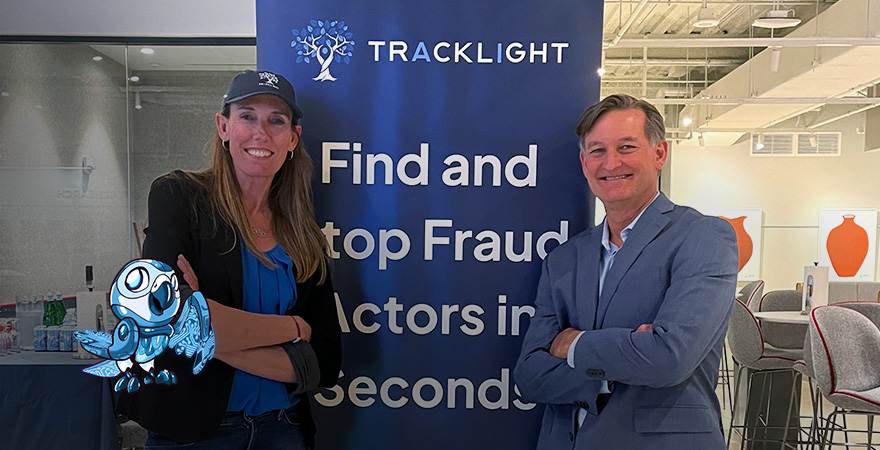
If you weren’t aware that fraud and improper payments have become an urgent crisis in government programs, then you haven’t been paying attention. Improper payments during FY 2021 were estimated to be about $281 billion — a $75 billion increase from FY 2020 and more than double the amount reported in FY 2017. And while the pandemic created the opportunity for the most fraud in our nation’s history, this problem will not end with the pandemic. It’s time for Congress to create a new strategy to curb this perennial issue and create a dedicated federal anti-fraud office.
The current approach to the prevention of fraud and improper payments is simply not working, and it has certainly raised alarm bells on Capitol Hill. I recently testified before the House Subcommittee on Government Operations on how the government can do more to prevent, detect, and respond to fraud and improper payments.
Today, fraud actors have at their disposal massive amounts of personal information on nearly every American. Coupled with sophisticated technological tools, this makes committing fraud far easier than it’s ever been.
The nearly $5 trillion in government relief spending during the COVID-19 pandemic — much of which was disbursed as direct payments to citizens — created the perfect storm for fraud. A combination of inadequate oversight and internal controls, large-scale organized fraud rings, and antiquated data and information systems contributed to the massive, widespread fraud we saw during the pandemic. A centralized approach to countering these trends is needed to coordinate efforts across agencies, increase collaboration and data sharing, and institute proactive, preventative measures to federal anti-fraud efforts.
A dedicated federal anti-fraud office could devote the time and resources to enhance data collection, data sharing, and data analytics capabilities across federal agencies. The U.S. Treasury’s Do Not Pay initiative — a central mechanism for providing data matching and data analytics services to support improper payment prevention and detection — could be enriched with third-party datasets. In the age of the data breach, addressing the urgent need of program managers to access and share data to root out fraud and improper payments is paramount.
The government severely lags the private sector in the use of technology to identify and prevent fraud. During the pandemic, fraud actors saw an enormous opportunity to exploit this weakness. State and federal agencies were and are vulnerable to fraud because they lack the tools necessary to detect fraud patterns. One example: a cyber intelligence research firm identified 259 variations of a single email address used by a crime ring to create accounts on state and federal websites with the intent to carry out fraud.
Government agencies must begin to catch up with the technology used by sophisticated fraud actors. A dedicated federal anti-fraud office could serve as the focal point for identifying emerging technology, establishing guidance, and providing technical assistance to help agencies adopt new technology and techniques.
Of course, while deliberating which anti-fraud tools to deploy, concerns about access and equity must be considered. Government must ensure legitimate beneficiaries are not unnecessarily hampered in accessing much-needed benefits. Today there are many automated, data-driven tools that can authenticate a user and verify identity and eligibility in near real time with little to no impact on the applicant.
It is vital to take a more targeted, risk-based approach to fraud and improper payment prevention and it must begin with Congress. Too many programs are currently required to comply with ineffective statutory requirements, which they undertake to simply check-the-box, wasting valuable time and resources that could be better spent on data- and outcome-oriented efforts.
It’s time for Congress to pivot from the well-intentioned but marginally effective and burdensome improper payment framework created over the last twenty years and toward a more pragmatic approach that emphasizes data and outcomes.
This new approach must also move away from the current siloed approach that focuses on fraud agency by agency. Instead, an all-of-government strategy should be created and run through a well-funded, centralized office. A dedicated anti-fraud office would have the necessary focus to work solely on addressing the data, accountability, and technology challenges facing agencies at every level of government.
The erosion of citizen trust in government is warranted when our leaders place so little priority on safeguarding the integrity of taxpayer dollars. It is time to rewrite the playbook for how to manage the risk of fraud and improper payments in the government. A dedicated federal anti-fraud office with requisite authority and resources is needed to devote the necessary attention to this enormous and growing problem. The time for Congress to act is now.
Linda Miller is a Principal at Grant Thornton, LLP, where she leads the firm’s Fraud & Financial Crimes Practice. She was formerly an Assistant Director in the Forensic Audits and Investigative Service group at the U.S. Government Accountability Office (GAO) and Deputy Executive Director of the Pandemic Response Accountability Committee.
Linda Miller is the former Principal at Grant Thornton, LLP, where she leads the firm’s Fraud & Financial Crimes Practice. She was formerly an Assistant Director in the Forensic Audits and Investigative Service group at the U.S. Government Accountability Office (GAO) and Deputy Executive Director of the Pandemic Response Accountability Committee.


Greg Loos and Linda Miller are the CEO and chief growth officer, respectively, of the company that brings AI to…
Read More
A risk-management framework is an essential starting point. Fraud is a persistent and growing problem for government programs. It costs…
Read More
In this exclusive interview, Ethisphere Editor in Chief Bill Coffin speaks with Linda Miller, Principal, Advisory Services, Grant Thornton LLP,…
Read More
Request a demo today and see how TrackLight can elevate your due diligence efforts.
Request a DemoFraud doesn’t wait. Neither should your systems.
TrackLight embeds advanced fraud detection directly into your workflow—no toggling, no guesswork. With real-time risk scoring, AI-generated insights, and human-vetted decision support, TrackLight empowers agencies and enterprises to act fast and act right.
Backed by a suite of products—including Due Diligence, Fraud Analytics, Social Network Analysis, and FLEX AI Agents—TrackLight helps you stay ahead of fraud, insider threats, and operational risk. All powered by Ray, your trusted AI Co-Pilot.
Stay ahead of the curve with industry insights and updates.